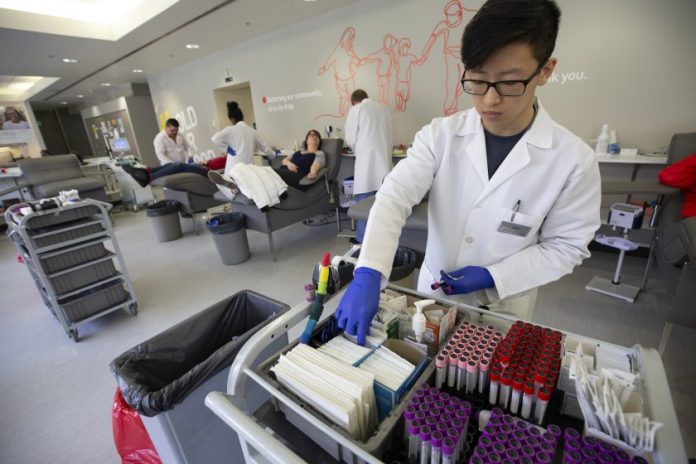
University of Cincinnati researchers have found that certain treatments for cancer may increase the chance of death if they contract COVID-19.
These findings from a multicenter study, presented at the European Society for Medical Oncology Virtual Congress 2020, shed light on ways standard anti-cancer treatments may impact outcomes for patients with both cancer and the coronavirus.
“Patients with cancer are susceptible to infection from COVID-19 and subsequent complications,” says Trisha Wise-Draper, MD, associate professor of medicine in the Division of Hematology Oncology at the UC College of Medicine and lead author. “They experience higher rates of hospitalization, up to 40%, severe respiratory illness and death. Treatment for cancer, within four weeks of [the diagnosis of] COVID-19, was suggested to be associated with higher rates of complications, but less is known about treatment before or after that time frame.
“In a previous study from the COVID-19 and Cancer Consortium, with a smaller group of patients, we found that several factors increased the chance of death including age, sex, history of smoking and other health conditions, including active cancer. However, recent cancer treatment was not associated with poor outcomes in the smaller cohort. Now, we’re investigating the correlation between timing of anti-cancer treatment and COVID-19 related complications as well as death in 30 days of a larger number of patients — over 3,000.”
“Of the 3,600 patients analyzed from 122 institutions across the country, we found that 30-day mortality was highest among cancer patients treated one to three months prior to COVID-19 diagnosis and was highest for those treated with a chemotherapy/immunotherapy combination,” continues Wise-Draper, a UC Health oncologist and member of the UC Cancer Center. “Death was especially high in those receiving anti-CD20 monoclonal antibodies, which are normally used to deplete abnormal B cells common for certain lymphomas, one to three months prior to COVID-19 infection — a time period for which significant B-cell depletion develops.”
She adds that death was higher for those undergoing active cancer treatment, except for endocrine therapy, when compared to patients untreated within a year prior to COVID-19 diagnosis.
“Any way you slice it, this is not good news for patients who are fighting cancer,” she says. “Targeted therapies, especially those causing immune cell depletion, used one to three months before [the diagnosis of] COVID-19, are associated with very high mortality, up to 50%. Also, death from any condition or reason in patients with cancer is higher than the general population, including those who have been in remission and have not received treatment in the last year.
“We previously reported that immunotherapy was safe for use in patients with cancer and COVID-19, but this reveals more about anti-cancer treatments for patients, showing that immunotherapy combinations and immune-depleting drugs, but not immunotherapy alone, may lead to worse outcomes. More research is needed on this topic as we continue to investigate the effect of the pandemic on this group of patients.”
Data for this study was taken from the CCC19 database, which involves a consortium of 100 cancer centers and other organizations, including UC, collecting data about patients with cancer who have been infected with COVID-19.































